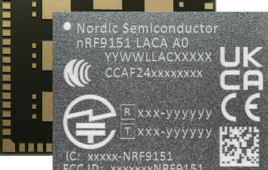 The College Board and the National Science Foundation (NSF) are announcing an extension of their partnership to support teachers and schools in offering the new Advanced Placement (AP®) Computer Science Principles course in the fall of 2016.
The College Board and the National Science Foundation (NSF) are announcing an extension of their partnership to support teachers and schools in offering the new Advanced Placement (AP®) Computer Science Principles course in the fall of 2016.
Although most U.S. students use information technology on a regular basis, only a small fraction of them have the opportunity to take a computer science course in high school. In fact, a smaller percentage of U.S. high school students take computer science courses today than two decades ago. In addition, women, African Americans and Hispanics are significantly underrepresented among those students who do take computer science courses.
In response, in 2009 the College Board, with NSF support, began developing a new Advanced Placement computer science course. That course, called AP Computer Science Principles, is designed to be rigorous, engaging, and relevant to all students. More than 30 teachers and university faculty collaborated to develop the AP Computer Science Principles course and exam.
During the last few years, NSF organized and provided funding for teams of teachers and faculty to work together and create, pilot, evaluate and revise a rich range of resources and materials aligned with the AP Computer Science course. Through these efforts, AP Computer Science Principles already has been piloted in hundreds of schools across the nation. These efforts are significant in preparation for the official AP course offering in the fall of 2016.
“Working with the College Board is an important part of NSF’s strategy to enable access to high-quality, exciting computer science courses for high schools across the country,” said Jim Kurose, head of Computer and Information Science and Engineering at NSF. “AP Computer Science Principles is designed to broaden the number and diversity of students who participate in computing, engaging students with diverse backgrounds and interests.”
“The College Board is committed to making computing science education possible for all students and empowering them to develop skills that will be critical to the jobs of today and tomorrow,” said David Coleman, College Board president and CEO. “Together with NSF, we have designed AP Computer Science Principles to appeal to a wider range of students, investing in new programs to support successful implementation in schools and providing professional development opportunities for teachers to ensure that the course delivers opportunity to students everywhere.”
The College Board plans to endorse a number of instructional materials from a range of organizations to prepare for the official launch of AP CS Principles.
Today, the College Board and NSF are jointly announcing that the College Board plans to endorse three programs designed and piloted with NSF support; teachers will be able to utilize programs such as these to implement the new AP Computer Science Principles course:
- The Beauty and Joy of Computing, created by professors at the University of California, Berkeley, serves as an introduction to computer science for the non-computer-scientist. It includes an emphasis on the social implications of computing and emphasizes inclusion, diversity and technology’s connection to society.
- Mobile CPS, developed by faculty at Trinity University, provides a rigorous, programming-based introduction to computational thinking and engages students to build socially useful mobile applications.
- Thriving in Our Digital World, designed by faculty and educators at the University of Texas at Austin, introduces students to the big ideas in computer science that exist across disciplinary boundaries.
In addition, an introductory high school course Exploring Computer Science–developed by researchers at UCLA and the University of Oregon with NSF funding–will expand opportunities for students to prepare for more advanced computing courses, including the college-level AP Computer Science Principles course. Exploring Computer Science focuses on the creative aspects of computing and computational thinking. Like AP Computer Science Principles, it encourages and enables students to apply computational approaches to issues and interests relevant to their lives and helps students develop many important college-readiness skills such as critical thinking, communication and teamwork through hands-on projects and problem solving.
These approaches have been successful in recruiting and retaining students who are typically underrepresented in the field. For example, in 2013 the percentage of African-American and Hispanic students who took the Thriving in Our Digital World course was 38 percent, compared with 13 percent for AP Computer Science A. Additionally, the Beauty and Joy of Computing, when taught at UC Berkeley in 2014, was the first lower-division Computer Science course ever to have more women than men enrolled.
Instructional resources alone, however, are not enough. Many more teachers who are prepared to teach these new courses are also needed. Since 2010, NSF has led the “CS 10K” effort with the goal of training ten thousand teachers to teach computer science in ten thousand schools. NSF plans to increase its efforts in the coming year to prepare for the official launch of AP Computer Science Principles in fall 2016.
To ensure that students across the country have access to high quality, engaging Computer Science coursework, NSF and the College Board are working with a number of partners. Both have partnered with Code.org and Project Lead the Way. Other NSF partners include the National Center for Women & Information Technology, the National Math and Science Initiative, Teach for America, the New York City Foundation for Computer Scienceand Massachusetts Computing Attainment Network.




